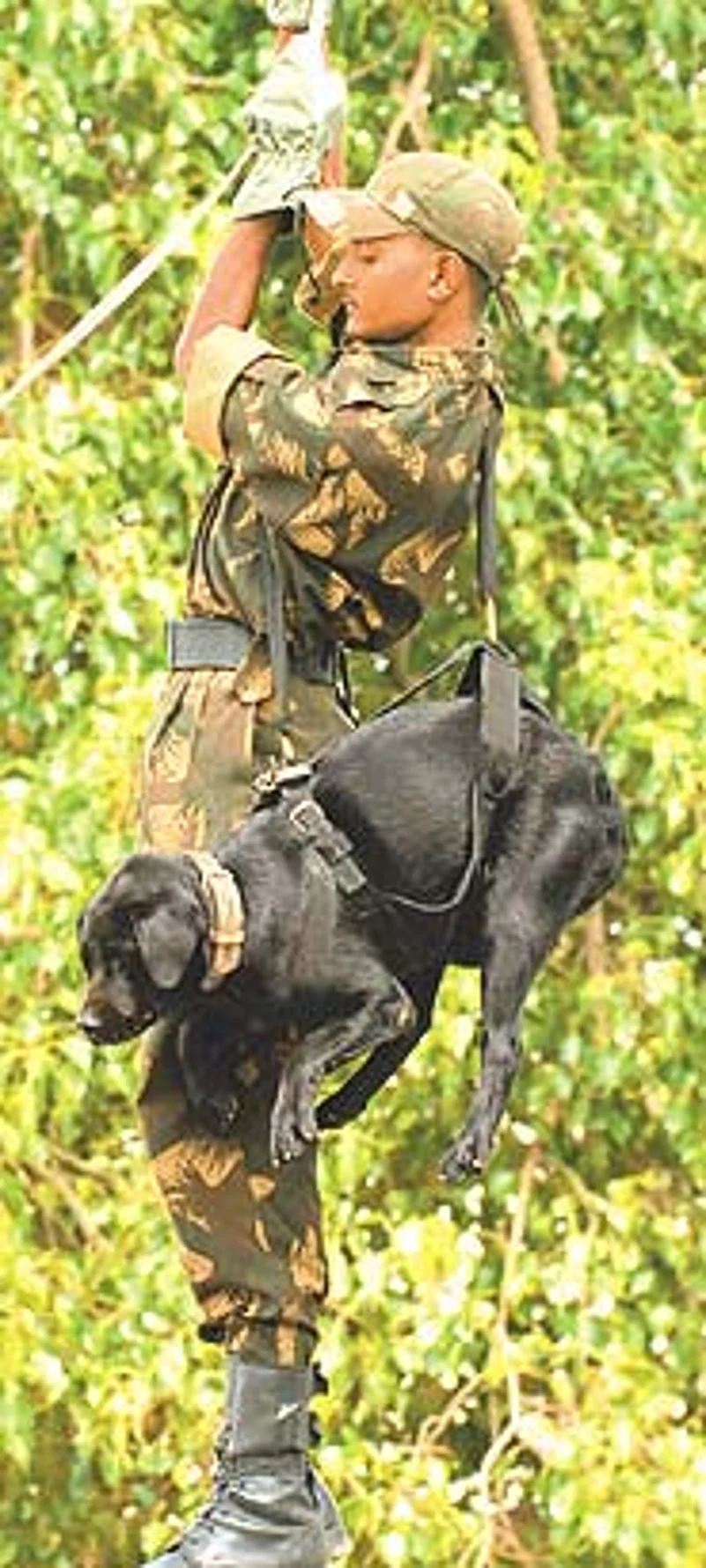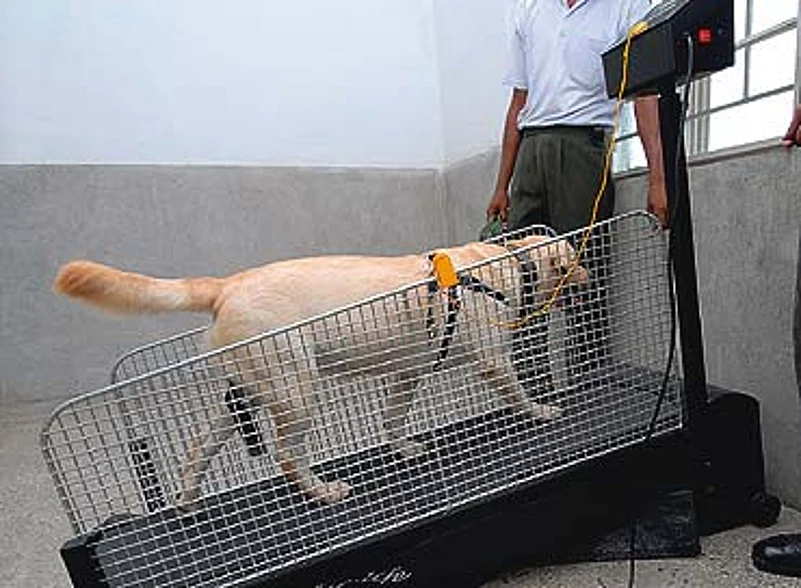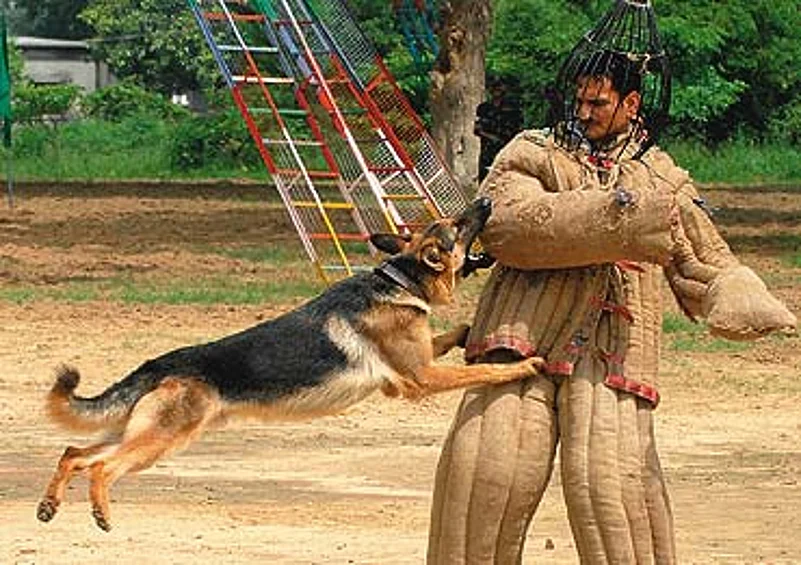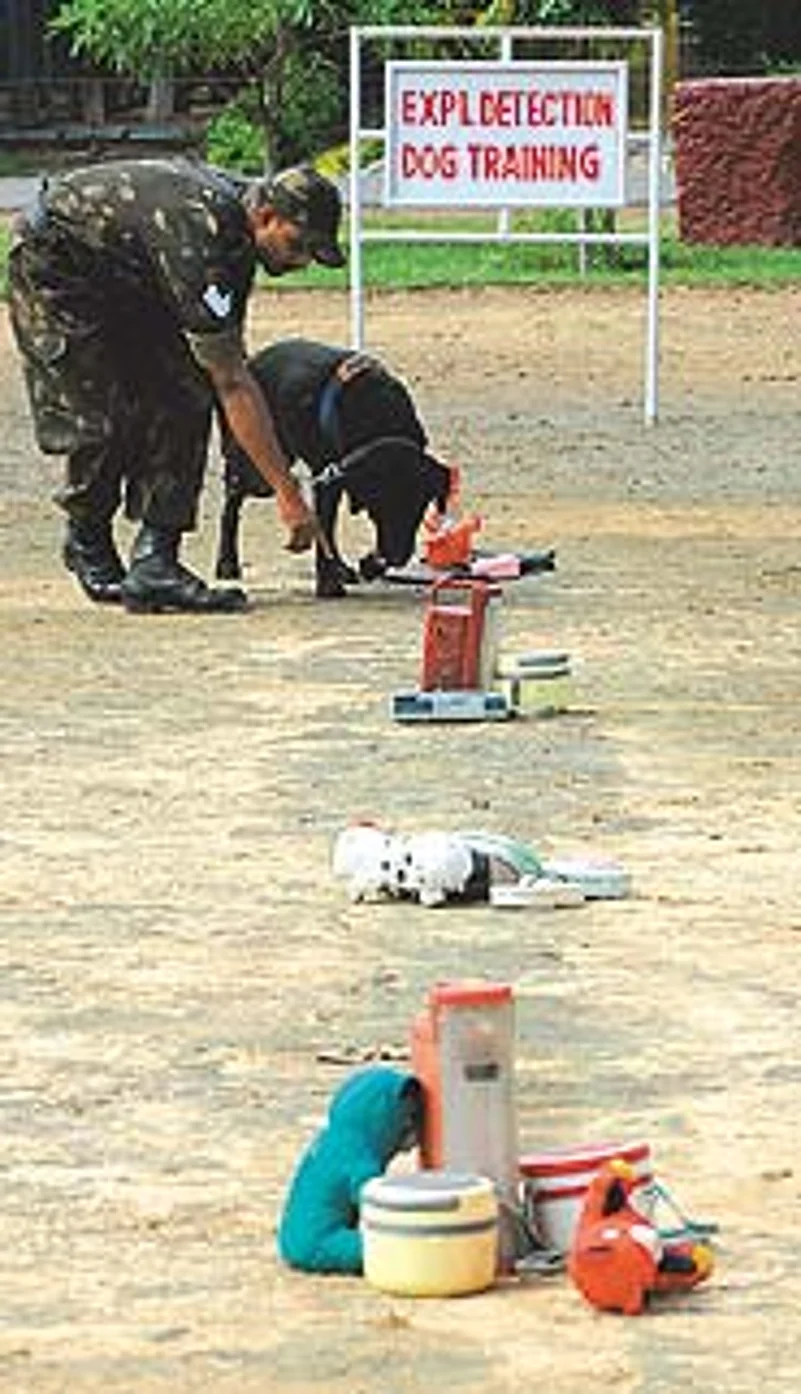***
***


Once divided into different squads according to their individual attributes, the dogs undergo intensive "simulated training" for about 36 weeks, in conditions close to those they will eventually have to work in. So, ED dogs, at first trained by sniffing around toys and TVs, are then trained to go on area searches and vehicle searches leaping on the hoods and boots of vehicles. They are taught to bark just once and then sit down when they detectTNT and plastics—explosives that escape the metal detectors' radar. The tracker dogs are trained to trace the scent from an object and follow it even to one person in a milling crowd.
Guard dogs and IP dogs are trained to catch intruders, and silently warn their handlers of their presence. Once they are given the go-ahead, guard dogs are taught to attack, practising their fearsome grip on trainers wearing thickly padded suits and head protectors made of wire mesh. Dogs deployed in search and rescue are trained to identify human presence from rubble structures, while those in avalanche rescue are despatched to Gulmarg in Kashmir for further training, to learn how to work under several feet of snow. Crude oil leakage detection dogs (not in deployment yet) are trained to sniff along a pipeline's path and sit down to indicate a leak.

a German Shepherd in attack mode
Some dogs are even trained for special operations in 'slithering', to remain poised while making a 15-metre descent from a helicopter while harnessed to their handlers. This, not surprisingly, takes the dogs some getting used to. "The first few times, they go quiet, retreat in fear, they are reluctant," says Brig J.K. Srivastava, commandant, RVC Centre and College. "But they get used to it. It's like someone from a village who faces an escalator for the first time."
Fearful as they might be initially, all dogs eventually become adept at their jobs, saving lives and averting disaster on a daily basis. Observes Lt Gen Narayan Mohanty, director general of the RVC: "Our dogs are a force multiplier in counter-insurgency operations in the Northeast and J&K. Last year, we sent six dogs to the deep jungles in Chhattisgarh, and they did in three months what we couldn't do in ten years: they found Naxalite hideouts, training areas, and ammo caches."
Naturally, these jobs aren't without their share of risks: dogs spotted by insurgents are often shot at, and those who sit on mines when they detect them—if they are not light enough—run the risk of getting blown up themselves. "We take pre-emptive precautions but dogs do get killed on duty on random occasions," says Deputy DG, RVC, Brig S.S. Thakral.

As for heroic acts on the job, the dog might only hear a "Shabaash, Lucy!" and get a thump on the chest signifying praise, but each feat is documented in monthly army circulars. The more remarkable of these earn commendations, medals and awards. Some acts by famous alumni are even spoken of decades later, and live on in framed photographs. Tracker dog Alex, a Golden Labrador, is one such legend. In 1965, he was put on duty after an attempt on the life of Bhutanese king Jigme Dorji Wangchuck in Paro. Alex picked up the would-be assassin's scent from a grenade lever, and ran miles across a forested hill, eventually catching him in a temple. In gratitude, the king awarded him Rs 1,000, his own gold ring and a certificate. More recent heroes are Rudali, who detected a huge deposit of explosives buried underground in '99, and Babli, who, in '05, tracked a dreaded militant to his hideout through rough terrain. Both are among the 70 dogs who have been awarded commendation cards.
If you are hoping to acquire a literate Labrador, though, you need to get in line, and it will be a very long wait. Surplus professionals like sniffer dogs cost—depending on the training they have had—about Rs 1.25 lakh upwards, and are made available to civilian bodies only with the Union ministry of defence's mandate. Those who have acquired them are paramilitary forces like the BSF, CISF, RPF and various police departments, besides foreign countries such as Sri Lanka, Bhutan and Bangladesh.
So, unless you are present at a crime scene or the site of a terrorist attack, or venture into Naxal-infested jungles or conflict zones, the closest you will get to seeing Unjha, Blond, Bhanu and their intrepid canine co-workers is to catch a glimpse of them marching at an Army Day parade, wearing their specialist dog tags, and stealing the limelight from their biped colleagues.


























